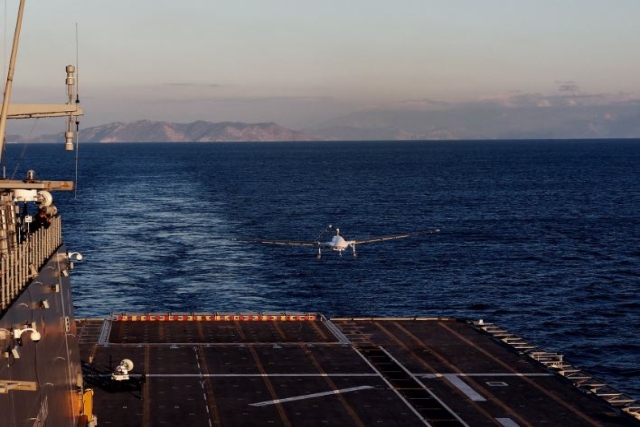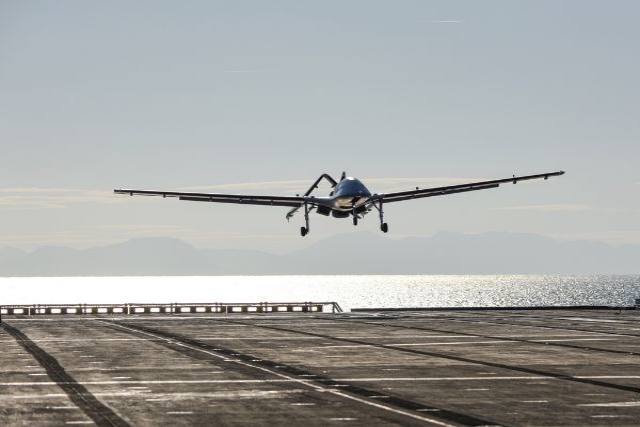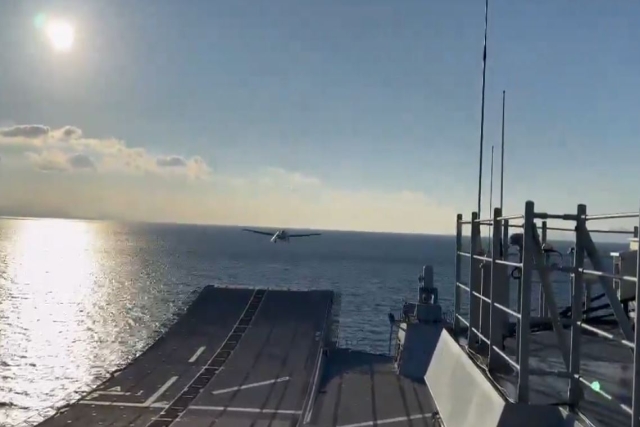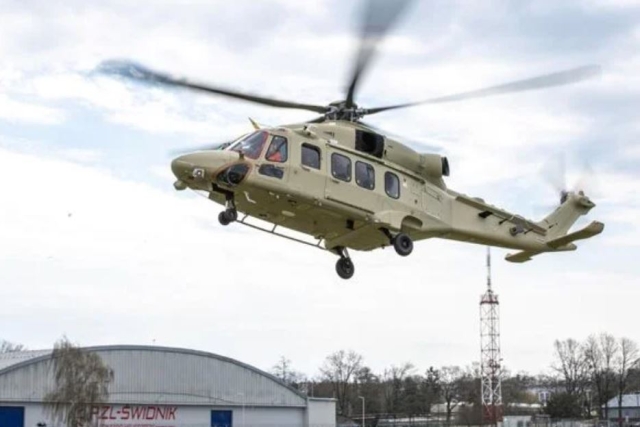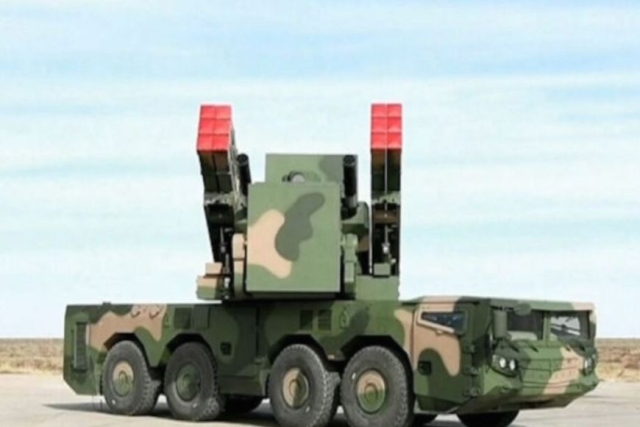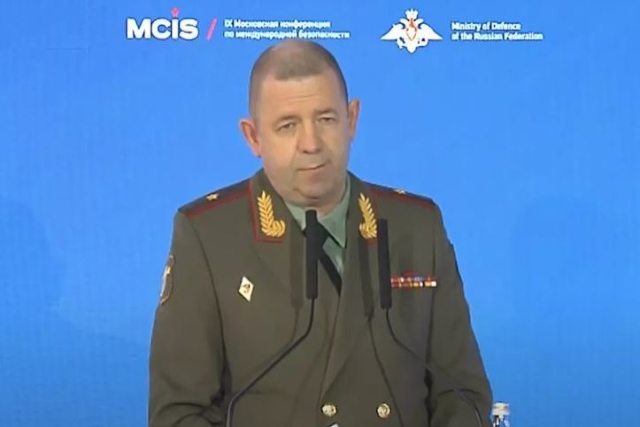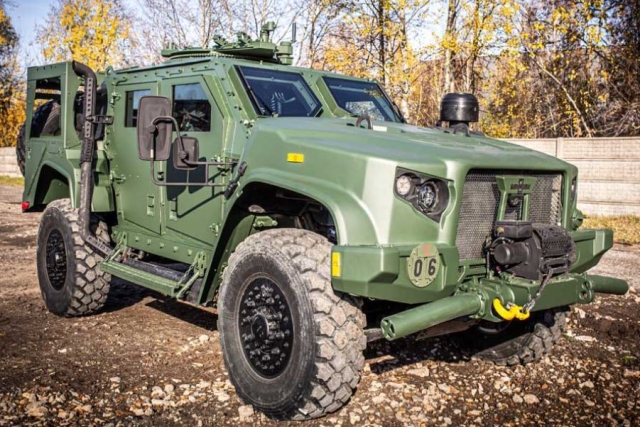Bayraktar TB3 Completes Four AI-Driven Sorties from TCG Anadolu Carrier
Fully AI-controlled takeoffs and landings conducted during ship-based trials in Gulf of Saros

Bayraktar TB3, the world’s first unmanned combat aerial vehicle (UCAV) designed to operate from short-runway vessels, has completed four fully autonomous sorties from the TCG Anadolu during test operations in the Gulf of Saros.
The test, conducted on April 22, marked another step forward in shipborne drone capabilities. According to Baykar, the manufacturer of Bayraktar TB3, the UCAV performed all takeoffs and landings without external assistance, using onboard artificial intelligence algorithms. The final sortie was executed at sunset.
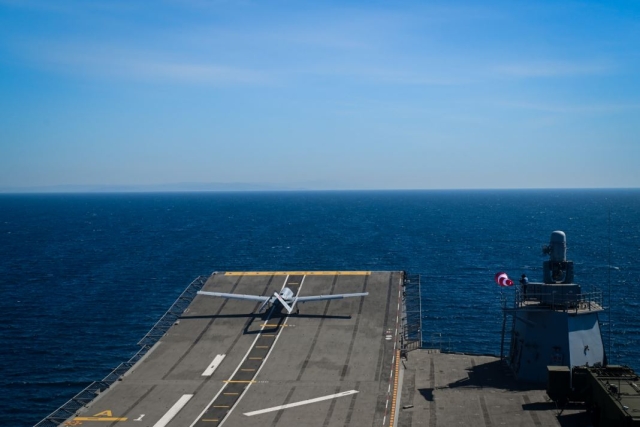
The UCAV's flight control system, supported by domestically developed AI, handled each maneuver without the need for additional landing aids.
Since its maiden ship-based flight on November 19, 2024, Bayraktar TB3 has accumulated over 1,016 hours of flight time. In December 2023, it demonstrated its endurance by remaining airborne for 32 hours, covering 5,700 kilometers without landing.
Earlier this year, Bayraktar TB3 demonstrated its strike capability in live-fire exercises. On March 25 and 27, the UCAV deployed UAV-122 supersonic missiles developed by Roketsan. In one test, it destroyed a camouflaged 6x6 meter naval target using a coordinated strike with a Bayraktar TB2, which designated the target using a laser.
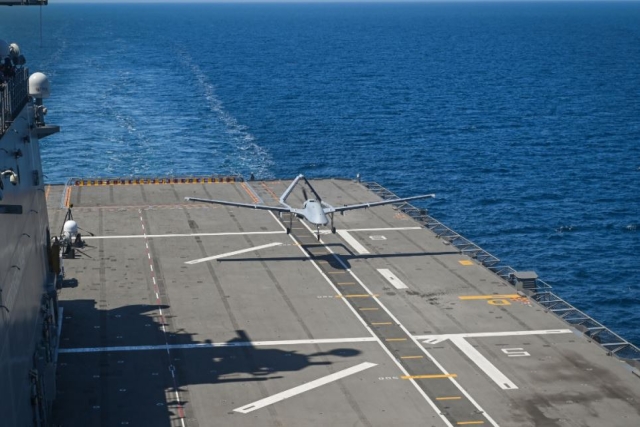
The drone also passed its High-Altitude System Performance Test in June 2024, reaching 36,310 feet using the indigenously built PD-170 engine from TEI. While this did not break the national altitude record held by Bayraktar AKINCI (45,118 feet), it validated the system’s operational ceiling for maritime missions.
In March 2024, Bayraktar TB3 carried out a test flight with ASELSAN’s ASELFLIR-500 — a domestically developed surveillance and targeting system. The integration was completed successfully, enhancing the drone’s surveillance precision.
The TB3’s foldable wing design and beyond-line-of-sight communication systems position it as a platform capable of supporting long-range missions from sea. Once in service, it is expected to conduct reconnaissance and strike operations over distant territories, functioning as a force multiplier for overseas deployments.
